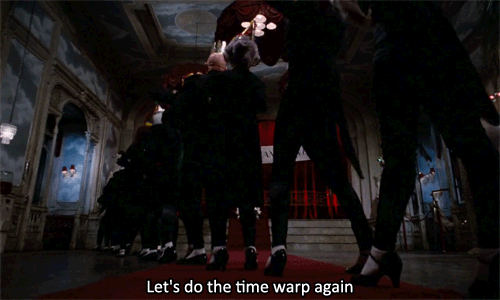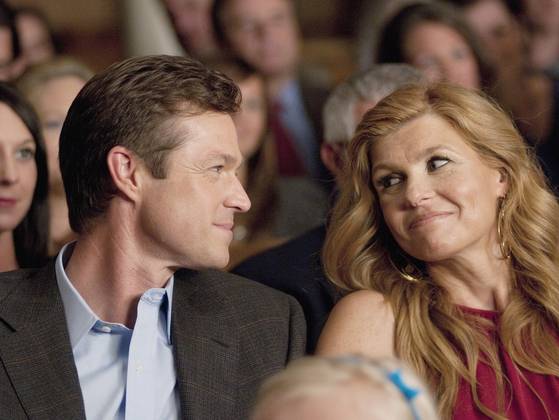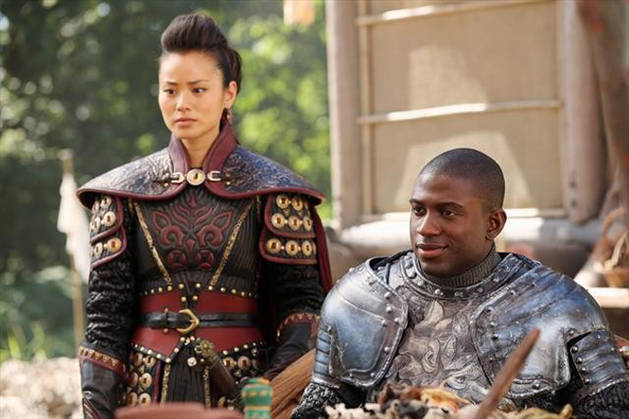Last night, I saw Argo.
It was great. Really, honestly, tensely great. Ben Affleck has once again
proved that he is a far more interesting director than he is an actor (though,
he is a good actor when he’s directing himself it seems). Bryan Cranston, Clea
Duvall, Victor Garber, John Goodman and Alan Arkin were all spectacular, and
the newcomers whose names I didn’t (and still don’t) know were pretty great
too.
In case you haven’t been able to piece it together from the
trailers (and in that case, I totally don’t blame you), Argo is based on a true story about the Iran Hostage Crisis. In my
mental picture of historical films, this is the film that hits right between The President’s Men and Charlie Wilson’s War. Also, happens at
the same time as Miracle. Had to get
that in there.
In 1979, the people of Iran revolted and ousted their Shah,
who’d been put in place by the United States some thirty or so years before.
The US liked him because he gave us oil rights. The people hated him because he
trampled all over their civil liberties, taxed them into starvation, and had a
secret police that tortured and killed thousands of dissenters. [You can learn more about this with the graphic novel Persepolis.]
They installed Ayatollah Khomeini as the ruler, and set about
changing the country. The Shah fled to America. Naturally, this upset the
Iranians, who were none too pleased at being denied the chance for justice
(though, at this point, justice far more likely meant death).
In rage at the
United States for its actions in support of the Shah, a group of radical
students and militants stormed the US embassy in Tehran, taking 52 hostages and
holding them for 444 days. Eight American servicemen and one Iranian civilian
died.
That’s the Iran Hostage Crisis. It was a chilling chapter of
history that only solidified the darkness that seemed to be creeping over the
world, caused President Carter’s defeat in the 1980 presidential election, and
has shaped US relations with Iran, and our entire foreign policy, for the past
thirty years.
This is a movie that takes place during that time. So, no,
it’s not a very happy movie.
The film follows six of the embassy workers who actually
escaped and were forced to hide in the Canadian Ambassador’s house for 79 days.
It takes you into their claustrophobic, strained life, and then shows you how
they got out. Which is the ridiculous part.
I won’t spoil the whole thing, but if you’ve seen the
trailers, then you know what I’m talking about. Ben Affleck plays Tony Mendez,
a real guy, whose specialty was to get people out of hostile countries. And in
this case, the best way to get those people out of Tehran was to pretend that
they were Canadian’s making a sci-fi movie and scouting locations. Which is
ridiculous.
But it really did happen. And that’s where the story gets,
well, interesting. The Canadian Caper, as it’s best known, didn’t become
declassified until 1997. So, for twenty-five years, we only knew part of the
story. It was a cool part, admittedly, but only part. And the story we knew
gave most of the credit (all of it, actually) to the Canadians.
Is that really such a bad thing?
There’s an issue that we run into in movies that are “based
on a true story”, especially ones that are focused on a particularly sore
historical spot like the Iran Hostage Crisis. We want to watch the movie and
uncomplicatedly root for our guys, right? We want to see the film and think,
these are the bad guys, these are the good guys, I can tell who is supposed to
win.
Life is nothing like that. Yes, the Iran Hostage Crisis was
horrible, cruel, and devastating to the American consciousness, to say nothing
of what it did to the hostages. But when we simplify the story down to “us good
them bad”, we lose the real story. We lose the complexity to say that while the
militants were inarguably wrong in their actions, they were also justifiably
angry. They had been tortured and starved for almost thirty years by a man that
we put in office. They had a right to be pissed.
Does that ever excuse something like what happened? No, of
course not. But it can explain it.
And while I, just like everyone else, enjoys a nice solid
cheer for the good guys (see here my love of the film Miracle), I think that Argo
might have put too fine a point on it. I think that in telling the “true”
story, we actually lost something.
That something was Canada.
Stay with me here.
For twenty-five years, we were under the impression that
those six Americans were saved because of the efforts of Canadian diplomacy and
bravery. The film, though it doesn’t contradict that, puts far more credit on
CIA and their operations. I’m not saying it’s wrong, precisely, just that it’s
not the full picture. For starters, Tony Mendez actually worked incredibly
intensively with Ottowa to put the plan in place. It wasn’t a CIA op that
happened to involve Canadian cover identities, it was an in depth collaboration
that lasted months.
 |
| The real Ken and Pat Taylor. |
Furthermore, Canadian Ambassador Ken Taylor (Victor Garber’s
character) was arguably the most influential man in the entire story. While
Mendez labored in North America to put the story together, Taylor had to
conceal six people moving in and out of Canadian safehouses in Tehran, all
while maintaining diplomatic relations with a government that wasn’t too
discerning about the difference between Canada and the US.
The man was amazing. Let’s remember that Taylor had no
actual duty to those people. He could have turned them away like most of the
other embassies had, and no one would have looked down on him. They weren’t
his, and he was in a precarious position to begin with. But he didn’t do that.
He took them in and kept them safe for 79
days.
Not only that, but he also managed to subtly get his staff
out of the country safely, close the embassy, and flee the country before
diplomatic relations between Canada and Iran soured. It’s a lot.
Now, again, I’m not saying that there’s anything wrong with
following Mendez’ journey on film, or that what he and the six hostages did
wasn’t spectacular and insane. Because it totally was. What I’m saying is
simply that, in focusing on the fantastical elements of the story (Fake movie!
Hollywood! Cover identities!), we can lose sight of the other heroes. The ones
who did it all quietly and in constant danger, but didn’t ask for recognition.
The Canadians.
Look, history is not an exact science. Everyone has a
different point of view. This was an American movie, so of course it told an
American story. That happens. But we have a duty in film, television, and any
cultural medium, to tell not just the flashiest, most exciting story, but to
tell the most important ones as well. And those aren’t always the same thing.
So, here’s to you, Canada. You jumped on a grenade to save
us, ruining your diplomatic relations with a volatile country in order to keep
just a few of us safe.
If you could see me now, I’m clapping in your general
direction.








